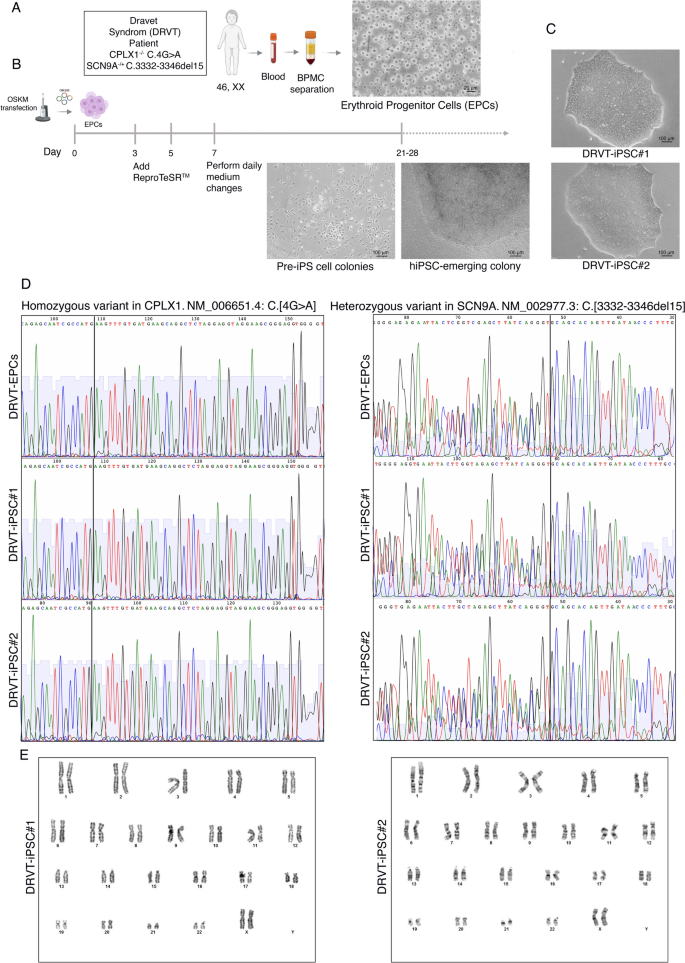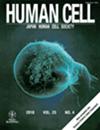从一名携带 CPLX1 基因同源突变和 SCN9A 基因杂合突变的沙特籍德雷维特综合征患者身上获得 iPSC 株系(KAIMRCi003A、KAIMRCi003B)。
IF 3.1
3区 生物学
引用次数: 0
摘要
最常见的癫痫性脑病是Dravet综合征(DRVT),80%的病例是由致病变体SCN1A引发的。然而,目前还没有涉及具有罕见基因变异的 DRVT-iPSC 的研究。在这里,我们建立了两个 DRVT-iPSC 株系,它们分别携带 CPLX1 基因的同源突变和 SCN9A 基因的杂合突变。因此,这些 iPSC 株系的产生为剖析 CPLX1 和 SCN9A 基因突变导致的细胞功能障碍的分子机制提供了一个独特的细胞平台。本文章由计算机程序翻译,如有差异,请以英文原文为准。

Generation of iPSC lines (KAIMRCi003A, KAIMRCi003B) from a Saudi patient with Dravet syndrome carrying homozygous mutation in the CPLX1 gene and heterozygous mutation in SCN9A
The most prevalent form of epileptic encephalopathy is Dravet syndrome (DRVT), which is triggered by the pathogenic variant SCN1A in 80% of cases. iPSCs with different SCN1A mutations have been constructed by several groups to model DRVT syndrome. However, no studies involving DRVT-iPSCs with rare genetic variants have been conducted. Here, we established two DRVT-iPSC lines harboring a homozygous mutation in the CPLX1 gene and heterozygous mutation in SCN9A gene. Therefore, the derivation of these iPSC lines provides a unique cellular platform to dissect the molecular mechanisms underlying the cellular dysfunctions consequent to CPLX1 and SCN9A mutations.
求助全文
通过发布文献求助,成功后即可免费获取论文全文。
去求助
来源期刊

Human Cell
生物-细胞生物学
CiteScore
6.60
自引率
2.30%
发文量
176
期刊介绍:
Human Cell is the official English-language journal of the Japan Human Cell Society. The journal serves as a forum for international research on all aspects of the human cell, encompassing not only cell biology but also pathology, cytology, and oncology, including clinical oncology. Embryonic stem cells derived from animals, regenerative medicine using animal cells, and experimental animal models with implications for human diseases are covered as well.
Submissions in any of the following categories will be considered: Research Articles, Cell Lines, Rapid Communications, Reviews, and Letters to the Editor. A brief clinical case report focusing on cellular responses to pathological insults in human studies may also be submitted as a Letter to the Editor in a concise and short format.
Not only basic scientists but also gynecologists, oncologists, and other clinical scientists are welcome to submit work expressing new ideas or research using human cells.
 求助内容:
求助内容: 应助结果提醒方式:
应助结果提醒方式:


